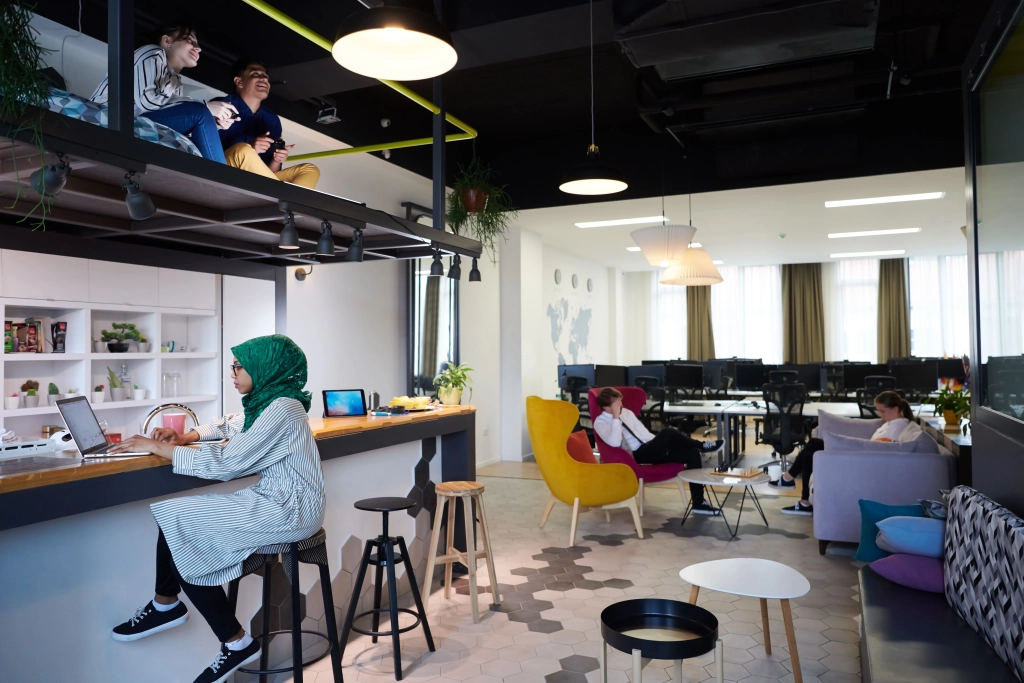Best Cities for Remote Workers: Embracing Work-from-Home Trends

The age of the remote worker is upon us. More and more people are embracing the work-from-home trend, looking for the perfect place to call both home and office.
The Philippines, with its vibrant culture and attractive living conditions, has emerged as a top destination for remote workers. In this guide, we will explore the Best Philippine Cities for Remote Workers, how these cities are embracing work-from-home trends, and what makes them ideal for digital nomads and telecommuters alike.
RELATED: The Rise of Workspaces in Residential Developments: Live-Work Lifestyles
Embracing the Remote Working Culture in the Philippines
The Philippines is a country that has quickly adapted to the global shift towards remote work. With a younger generation that is tech-savvy and a government that supports technological innovation, the country is a hotspot for remote workers. From freelance writers to software developers, the wide range of opportunities has created a thriving community of digital nomads.

Cultural Adaptation to Work-from-Home
The Filipinos’ warm and welcoming nature extends to their approach to remote work as well. The local population has embraced this trend, and cities are adapting to accommodate the needs of remote workers. From co-working spaces to cafés designed for work, the blend of tradition and modernity is evident everywhere.
Government Support and Regulations
The Philippine government plays a vital role in supporting remote work. With policies that favor entrepreneurship and innovation, there is growing encouragement for this mode of work. Various incentives, streamlined processes for setting up businesses, and support for tech start-ups have laid the groundwork for a vibrant remote work culture.
Internet Connectivity and Technology Infrastructure
Availability of High-Speed Internet
Internet connectivity is the lifeblood of remote work. Most major cities in the Philippines offer high-speed internet with various options for service providers. Cities like Manila, Cebu, and Davao City are at the forefront, providing reliable and affordable connections, making them some of the best Philippine cities for remote workers.

Co-working Spaces and Community
Co-working spaces are rapidly growing in the Philippines. These places are not just about a shared working environment; they are hubs for creativity, collaboration, and community. Offering amenities like high-speed internet, meeting rooms, and networking events, these spaces have become the go-to for many remote workers.
Technological Tools and Support
The rise of tech companies and the availability of various tools that facilitate remote work is another boon. From project management tools to virtual communication platforms, the tech infrastructure in the Philippines supports the needs of remote workers seamlessly.
Best Philippine Cities for Remote Workers
Manila – The Bustling Capital
Manila, the heart and soul of the Philippines, is a city that never sleeps. Its vibrant energy, booming business districts, and rich cultural heritage make it an attractive destination for remote workers. With an abundance of co-working spaces, tech hubs, and lifestyle amenities, the capital city offers everything a remote worker needs.
Cebu – A Blend of Tradition and Modernity
Cebu is a city where the old meets the new. With its stunning beaches, historic sites, and modern urban areas, it offers a unique work and living experience. Its burgeoning tech scene, coupled with a lower cost of living compared to Manila, makes Cebu a preferred choice for many remote workers.
Davao City – Nature’s Beauty with Urban Comfort
Davao City, known for its lush landscapes and vibrant culture, offers a unique blend of urban living with a touch of nature. The city’s emphasis on safety, order, and development has made it a promising destination for remote workers. High-speed internet, growing business sectors, and a friendly community add to its charm.
Baguio – The Cool Climate City
Baguio is often referred to as the “Summer Capital of the Philippines” due to its cool climate. Its refreshing weather, artistic community, and serene landscapes make it a haven for writers, designers, and creatives. Baguio’s community of remote workers enjoys the city’s unique ambiance and cultural richness.
Tagaytay – Overlooking Serenity
Tagaytay is a city known for its breathtaking views of Taal Volcano and Lake. It’s a city where remote workers can find peace and inspiration. With its cooler climate, excellent connectivity, and reasonable cost of living, Tagaytay is emerging as a favorite among those looking to work with a view.
Iloilo – Historical Elegance Meets Modern Amenities
Iloilo City, known as the “City of Love,” beautifully blends its historical roots with modern infrastructure. Its booming economy, coupled with rich cultural traditions, offers a unique environment for remote workers. The city’s progress in technology and healthcare, along with its hospitality, makes it a standout choice.
Clark – Emerging Hub for Business and Lifestyle
Clark is a city on the rise. Its strategic location and investment in modern infrastructure have made it a growing hub for business and lifestyle. Remote workers are finding Clark attractive for its well-planned urban areas, excellent connectivity, and opportunities for leisure and recreation.

Lifestyle Considerations in Remote Working Cities
Cost of Living
One of the primary considerations for remote workers is the cost of living. Cities like Cebu and Davao offer a more affordable lifestyle compared to Manila. Considering factors like rent, utilities, transportation, and food can help remote workers choose the city that fits their budget.
Healthcare and Safety
Healthcare and safety are paramount for anyone considering a move. The Philippines has a range of healthcare facilities from public hospitals to high-end private clinics. Safety in cities is often ensured through community policing, and many cities are taking proactive measures to make them safe for both locals and expatriates.
Recreational Activities and Social Life
All work and no play can make life dull. The cities we’ve explored offer a rich array of recreational activities and social opportunities. From beaches to hiking trails, nightlife to cultural festivals, the Philippines provides diverse options to unwind and socialize.
Educational Opportunities
For remote workers with families, educational opportunities are a significant factor. The Philippines hosts various international schools, colleges, and universities that offer globally recognized curricula. Cities like Manila, Cebu, and Clark are particularly known for their educational institutions.
Building a Community of Remote Workers
Networking and Social Groups
Building connections and networking is essential for remote workers. Various social groups, both online and offline, foster community and collaboration. From industry-specific meetups to casual hangouts, these groups provide opportunities to connect and grow.
Online Platforms and Communities
Online platforms have played a vital role in building remote work communities. Websites and social media groups cater to different interests and professions, offering a space to share ideas, ask questions, and find support.
Events and Meetups
Regular events and meetups are organized in various cities to bring remote workers together. These events range from workshops and seminars to casual networking parties. They create a sense of community and offer opportunities for personal and professional growth.
Challenges and Solutions for Remote Workers in the Philippines
Balancing Work and Life
Finding the right balance between work and life is a common challenge for remote workers. The flexibility of remote work can sometimes blur the lines between professional and personal life. Cities like Baguio and Tagaytay, with their relaxed ambiance, can offer a more balanced lifestyle.
Dealing with Isolation
Remote work can sometimes lead to feelings of isolation. The sense of community in cities like Cebu and Iloilo, along with co-working spaces and regular meetups, can help mitigate this feeling.
This guide is not just about highlighting the top destinations; it’s about understanding the lifestyle, culture, opportunities, and challenges that come with remote work in the Philippines. This comprehensive guide offers insights and practical advice from first-hand experiences and expert opinions.
Whether you’re considering a move or just curious about the possibilities, we hope this guide serves as a valuable resource in your remote work journey.
Frequently Asked Questions
What is the best city in the Philippines for remote workers?
The best city depends on individual preferences and needs. Cities like Manila, Cebu, and Davao offer a blend of urban amenities and cultural richness that many remote workers find appealing.
How is the internet connectivity in the Philippines for remote work?
Internet connectivity in the major cities of the Philippines is generally reliable and affordable. High-speed options are available, and co-working spaces often provide robust connections.
Is the Philippines safe for remote workers?
Safety can vary across regions, but most cities are taking proactive measures to ensure the safety of both locals and expatriates. It’s always wise to follow local guidelines and consult with local residents or authorities.
What are the legal requirements for remote working in the Philippines?
Legal requirements may vary depending on the nature of work and visa status. Consulting with local legal experts or the embassy can provide accurate information tailored to individual circumstances.
Can I enjoy a good social life while working remotely in the Philippines?
Absolutely! The Philippines offers a vibrant social scene with various activities, events, and groups to join. From outdoor adventures to cultural explorations, social life is thriving.
Are there any specific challenges I should be aware of when working remotely in the Philippines?
Challenges may include finding the right balance between work and life, dealing with feelings of isolation, and understanding legal and tax considerations. However, with proper planning and awareness, these challenges can be managed effectively.
Read more here: AllProperties Latest Blogs




